- Monday, 23 May 2022

Deep phenotyping of disease
Chiara Giannarelli, New York, USA
Chiara Giannarelli is Assistant Professor, Precision Immunology Institute, Icahn School of Medicine at Mount Sinai, New York and Department of Medicine, Division of Cardiology and Cardiovascular Research Center at NYU Langone NYU Grossman School of Medicine, New York. After completing her medical degree, Dr Giannarelli undertook training in Internal Medicine and a PhD in pharmacological sciences and pathophysiological mechanisms of cardiovascular disease at the University of Pisa, Italy. After completing a research fellowship at the Icahn School of Medicine at Mount Sinai she was appointed Assistant Professor in 2013. Her current research focuses on the identification of new molecular targets responsible for the phenotypic switch of atherosclerotic plaques towards an advanced phenotype. She is now conducting translational and patient-oriented research using a Systems Biology approach to define new mechanisms and molecular targets for plaque instability in human samples from patients with clinically stable and unstable carotid and coronary disease.
Systems approaches encompassing genomics, lipidomics and metabolomics have advanced understanding of the biology of atherosclerosis. Application of deep phenotyping of gene transcriptional and regulatory effects of lipid associated loci, together with ‘cloud’ computing power and ‘big data’, have also identified novel targets with therapeutic potential.
A key focus is inflammation, given its involvement at all stages of atherosclerosis, and evidence that anti-inflammatory interventions reduce the risk of adverse cardiovascular events in patients with recent acute myocardial infarction. Until recently, research has targeted systemic inflammation; however, the emergence of single-cell technologies offers the capability for multi-dimensional profiling of human atherosclerotic plaques, providing insights into novel immune alterations in the plaque microenvironment that are associated with the clinical manifestations of atherosclerosis, as well as key cell-cell signalling networks contributing to progression of atherosclerosis. Single-cell omics can therefore have value in identifying precise interventions that restore the function of immune cellular and molecular networks acting within the circulation and in atherosclerotic lesions in the same patient, with the ultimate goal of reducing both systemic and plaque inflammation.
For the future, the integration of single-cell omics studies in humans with relevant functional experimental models will provide a framework for the development of personalised immunotherapies targeting specific groups of patients who will derive most benefit.
Key references
Hill CA, Fernandez DM, Giannarelli C. Single cell analyses to understand the immune continuum in atherosclerosis. Atherosclerosis 2021;330:85-94.
Afonso MS, Sharma M, Schlegel M, van Solingen C, Koelwyn GJ, Shanley LC, Beckett L, Peled D, Rahman K, Giannarelli C, Li H, Brown EJ, Khodadadi-Jamkaran A, Fisher EA, Moore KJ. miR-33 silencing reprograms the immune cell landscape in atherosclerotic plaques. Circ Res 2021;128:1122-1138.
Fernandez DM, Giannarelli C. Mapping transplant arteriosclerosis cell-by-cell: a path to new immune insights. Circ Res 2020;127:994-996.
Wolfgang Koenig, Munich, Germany
Wolfgang Koenig is Professor of Medicine/Cardiology and Head of the Cardiometabolic Unit, the German Heart Center Munich, Technical University of Munich. Prior to his appointment in 2015, he was Director of the WHO-MONICA Augsburg Myocardial Infarction Register, and held multiple clinical positions at the University of Ulm Medical Center.
His research interest is atherosclerosis, focusing on the identification and evaluation of new biomarkers for cardiometabolic diseases, the clinical pharmacology of cardiovascular compounds, and the clinical epidemiology of cardiovascular disorders. He serves on the steering committees of several large, international clinical trials. He has published more than 900 papers and has an H-Index of 101. Recent awards include the Rudolf Schönheimer Award from the German Atherosclerosis Society (2104), the degree of Adjunct Professor from the Medical University of Vienna (2019), and the Paul Morawitz price from the German Cardiac Society (2020).
Personalised medicine, in which medical therapy is tailored to specific patient characteristics, is now a clinical reality. Imaging and biomarkers are two of the tools that can help in precisely defining disease mechanisms so that treatments are targeted to patients likely to benefit most.
Imaging already has a pivotal role in diagnosis and risk stratification in atherosclerotic cardiovascular disease (ASCVD) prevention. Multimodal cardiovascular imaging can identify vulnerable plaque and may anticipate the beneficial effect of pharmacological agents on clinical endpoints and patients’ potential responsiveness to these agents. Leveraging artificial intelligence and machine learning provides objective assessment of the potential clinical benefit to the individual, and thus aids transition to personalised delivery of precision cardiovascular medicine.
Identification and validation of novel biomarkers also provide opportunities for personalising therapy, moving beyond the use of a single marker such as apolipoprotein B/LDL-C to simultaneously target other drivers of atherosclerotic risk. For example, mechanistic studies have shown an interplay between inflammatory processes within the arterial wall or systemic circulation and the cholesterol pathway, linked by activation of the NLRP3 inflammasome. Prevailing evidence suggests that targeting the NLRP3 inflammasome pathway may help to refine phenotypic screening, improve risk stratification, and guide treatment eligibility. Combining multiple markers into a multiplex panel could further improve the application of personalised approaches to ASCVD prevention.
Taken together, integrating information from ‘omics’ technologies with traditional risk factors and imaging data, using artificial intelligence approaches will aid the implementation of specific treatment strategies for precision cardiovascular medicine.
Key references
Sujana C, Salomaa V, Kee F, Costanzo S, Söderberg S, Jordan J, Jousilahti P, Neville C, Iacoviello L, Oskarsson V, Westermann D, Koenig W, Kuulasmaa K, Reinikainen J, Blankenberg S, Zeller T, Herder C, Mansmann U, Peters A, Thorand B; BiomarCaRE Consortium. Natriuretic peptides and risk of type 2 diabetes: results from the biomarkers for cardiovascular risk assessment in Europe (BiomarCaRE) Consortium. Diabetes Care 2021;44:2527-2535.
Batra G, Ghukasyan Lakic T, Lindbäck J, Held C, White HD, Stewart RAH, Koenig W, Cannon CP, Budaj A, Hagström E, Siegbahn A, Wallentin L; STABILITY Investigators. Interleukin 6 and cardiovascular outcomes in patients with chronic kidney disease and chronic coronary syndrome. JAMA Cardiol 2021:e213079.
Wallentin L, Eriksson N, Olszowka M, Grammer TB, Hagström E, Held C, Kleber ME, Koenig W, März W, Stewart RAH, White HD, Åberg M, Siegbahn A. Plasma proteins associated with cardiovascular death in patients with chronic coronary heart disease: A retrospective study. PLoS Med 2021;18(1):e1003513.
Amit V Khera, Boston, USA
Amit V. Khera is a cardiologist, human geneticist, and population biologist at Massachusetts General Hospital (MGH), group leader within the MGH Center for Genomic Medicine, Associate Director of the Program in Medical and Population Genetics and Merkin Institute Fellow at the Broad Institute of MIT and Harvard, and Assistant Professor at Harvard Medical School. He received his MD with Alpha Omega Alpha distinction from the Perelman School of Medicine, University of Pennsylvania before clinical training in Internal Medicine and cardiology at Brigham and Women’s Hospital and MGH. He completed a Masters of Science at the Harvard School of Public Health and a postdoctoral research fellowship with Dr. Sekar Kathiresan in human genetics at the Broad Institute of MIT and Harvard.
His research (kheralab.org) uses genetic variation as a tool to uncover new biology and enable enhanced clinical care informed by inherited susceptibility. Among his scientific contributions, he pioneered use of a new approach to quantify genetic risk (‘genome-wide polygenic scores’) for common diseases, developed biomarkers that provide new biologic insights, and analysed large-scale gene sequencing data to highlight key pathways driving risk and identify molecular subtypes of cardiometabolic diseases.
Dr Khera has authored scientific publications numerous high impact journals and his work has been recognised as among the top ten research advances by the American Heart Association (in both 2016 and 2018), and the National Human Genome Research Institute (in 2020). In 2019, he was awarded the Douglas P. Zipes Distinguished Young Scientist Award from the American College of Cardiology. In tandem with his research efforts, he founded and is co-leading a Preventive Genomics Clinic at MGH to provide a clinical infrastructure for genome-first medicine.
Genetic risk scores offer great potential in the delivery of precision cardiovascular medicine, across primary and early secondary prevention settings, with the opportunity to intervene earlier to inform treatment choices and reduce the likelihood of clinical disease. Integration of genetic risk scores within clinical practice also has wider impact, in optimising healthcare resource use to individuals most likely to be benefit from specific interventions.
While widely applied in research studies, the clinical utility of genetic risk scores has yet to be established. There are also important challenges to their implementation. Key amongst these is the need for further validation to ensure accuracy and reliability, barriers to implementation and to the interpretation of information, education of healthcare personnel, and reimbursement issues. There are also ethical issues relating to how such information is used and the paucity of representation from different ethnicities. These challenges underline the need for further validation within each population ancestry group; definition of the added clinical value from the use of the score; consideration of benefits versus harms in research studies; and assessment of relevant social, ethical and legal issues that may impact reimbursement and health policy. Successful implementation will most likely be in personalising preventive measures and informing treatment choice.
Key references
Patel AP, Wang M, Kartoun U, Ng K, Khera AV. Quantifying and understanding the higher risk of atherosclerotic cardiovascular disease among South Asian individuals: results from the UK Biobank Prospective Cohort Study. Circulation 2021;144:410-422.
Kim MS, Kim WJ, Khera AV, Kim JY, Yon DK, Lee SW, Shin JI, Won HH. Association between adiposity and cardiovascular outcomes: an umbrella review and meta-analysis of observational and Mendelian randomization studies. Eur Heart J 2021;42:3388-3403.
Hindy G, Aragam KG, Ng K, Chaffin M, Lotta LA, Baras A; Regeneron Genetics Center, Drake I, Orho-Melander M, Melander O, Kathiresan S, Khera AV. Genome-wide polygenic score, clinical risk factors, and long-term trajectories of coronary artery disease. Arterioscler Thromb Vasc Biol 2020;40:2738-2746.
Eicke Latz, Bonn, Germany
Eicke Latz studied medicine in Göttingen and Berlin and worked as an intensive care physician at the Charité Hospital in Berlin. Starting in 2000, he undertook post-doctoral training at Boston University and UMass Medical School, and joined the UMass faculty in 2006. In 2010 he returned to Germany and founded the Institute of Innate Immunity at the University of Bonn. His laboratory focuses on identifying the most proximal mechanisms of innate immune activation involved in mediating chronic inflammatory diseases. The use of systems approaches that decipher how lifestyle-associated factors trigger and maintain chronic inflammation and disease development, enables identification of novel therapeutic targets. Eicke has co-founded IFM Therapeutics, DiosCure Therapeutics and a ‘Stealth’ biotech which translate discoveries into novel therapeutics. He is a highly cited scientist in immunology yearly since 2014, and he has received prestigious awards, including the Gottfried Wilhelm Leibniz Prize in 2018.
Epigenetic control is one of the most fundamental regulatory systems within the cell. Although different cells contain the same genetic material, they have different epigenomic signatures, which may be heritable or temporary, caused by dynamic responses to the environment thereby providing a link between phenotypic profile and disease risk. Epigenetic modifications, such as DNA methylation and post-translational histone processing, have emerged as important regulators of key signalling pathways that alter monocyte/macrophage phenotypes in response to environmental stimuli, and thus important factors in the pathogenesis of atherosclerosis. In contrast to adaptive immune responses, epigenetic reprogramming of transcriptional pathways mediates trained immunity, involving enhanced responsiveness to subsequent triggers. This process is likely to confer detrimental outcomes in the context of chronic inflammatory diseases, such as atherosclerosis.
Atherosclerotic plaque formation is a dynamic multi-cellular process in which the activity of the different cell types involved is essentially determined by the regulation of different genes. Epigenetic factors modulate vascular smooth muscle cell phenotype to either promote or prevent arterial remodelling. These insights have led to suggestions that atherosclerosis is an epigenetic disorder rather than a ‘lipid’, ‘metabolic’, and ‘inflammatory’ disorder. The ongoing challenge is to understand how the mechanisms of epigenetic regulation, including those mediated by intragenic epigenetic modifications and long coding RNAs, promote vascular disease. Finally, the reversibility of epigenetic modifications may suggest future potential for identifying novel therapeutic targets for atherosclerosis.
Key references
Budden CF, Gearing LJ, Kaiser R, Standke L, Hertzog PJ, Latz E. Inflammasome-induced extracellular vesicles harbour distinct RNA signatures and alter bystander macrophage responses. J Extracell Vesicles 2021;10(10):e12127.
Latz E. The inflammasome: from bench to bedside. Nat Rev Immunol 2021;21:622-623.
Divangahi M, Aaby P, Khader SA, Barreiro LB, Bekkering S, Chavakis T, van Crevel R, Curtis N, DiNardo AR, Dominguez-Andres J, Duivenvoorden R, Fanucchi S, Fayad Z, Fuchs E, Hamon M, Jeffrey KL, Khan N, Joosten LAB, Kaufmann E, Latz E, Matarese G, van der Meer JWM, Mhlanga M, Moorlag SJCFM, Mulder WJM, Naik S, Novakovic B, O’Neill L, Ochando J, Ozato K, Riksen NP, Sauerwein R, Sherwood ER, Schlitzer A, Schultze JL, Sieweke MH, Benn CS, Stunnenberg H, Sun J, van de Veerdonk FL, Weis S, Williams DL, Xavier R, Netea MG. Trained immunity, tolerance, priming and differentiation: distinct immunological processes. Nat Immunol 2021;22:2-6

